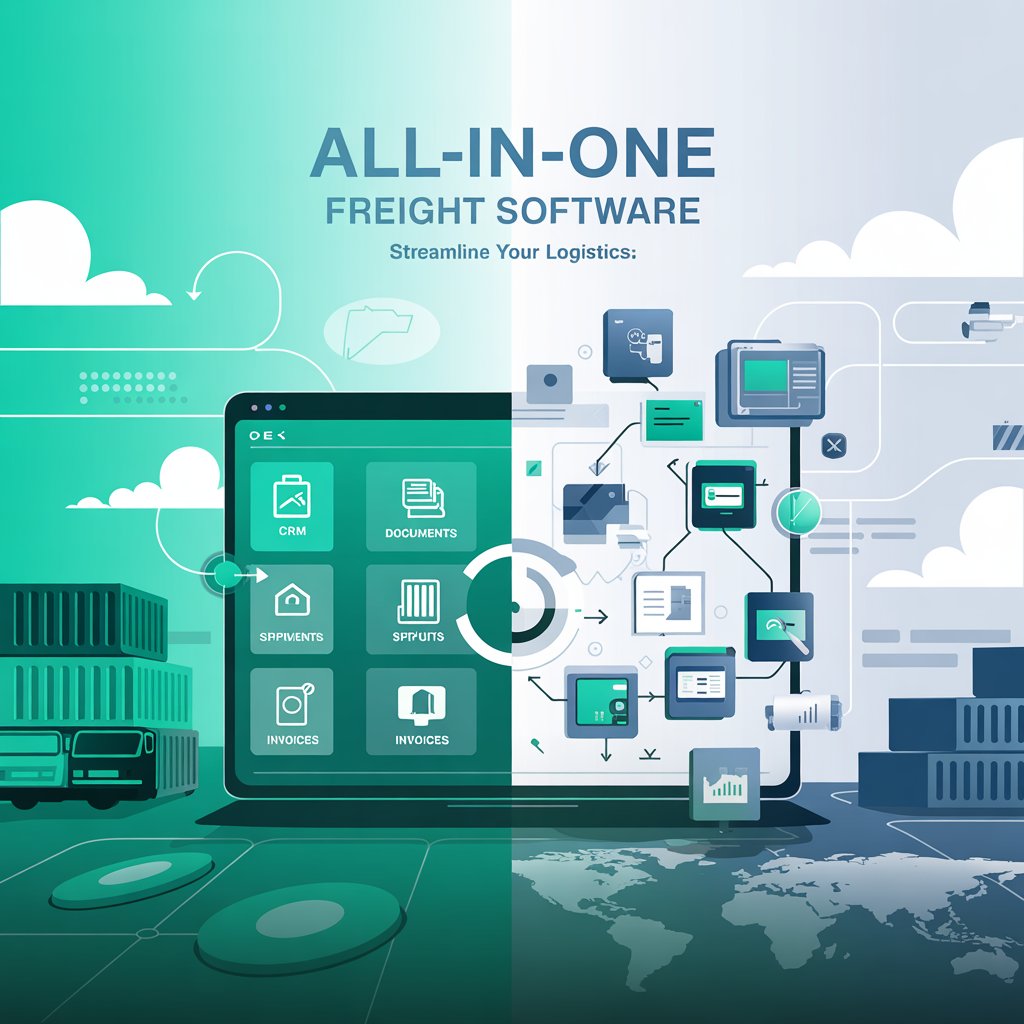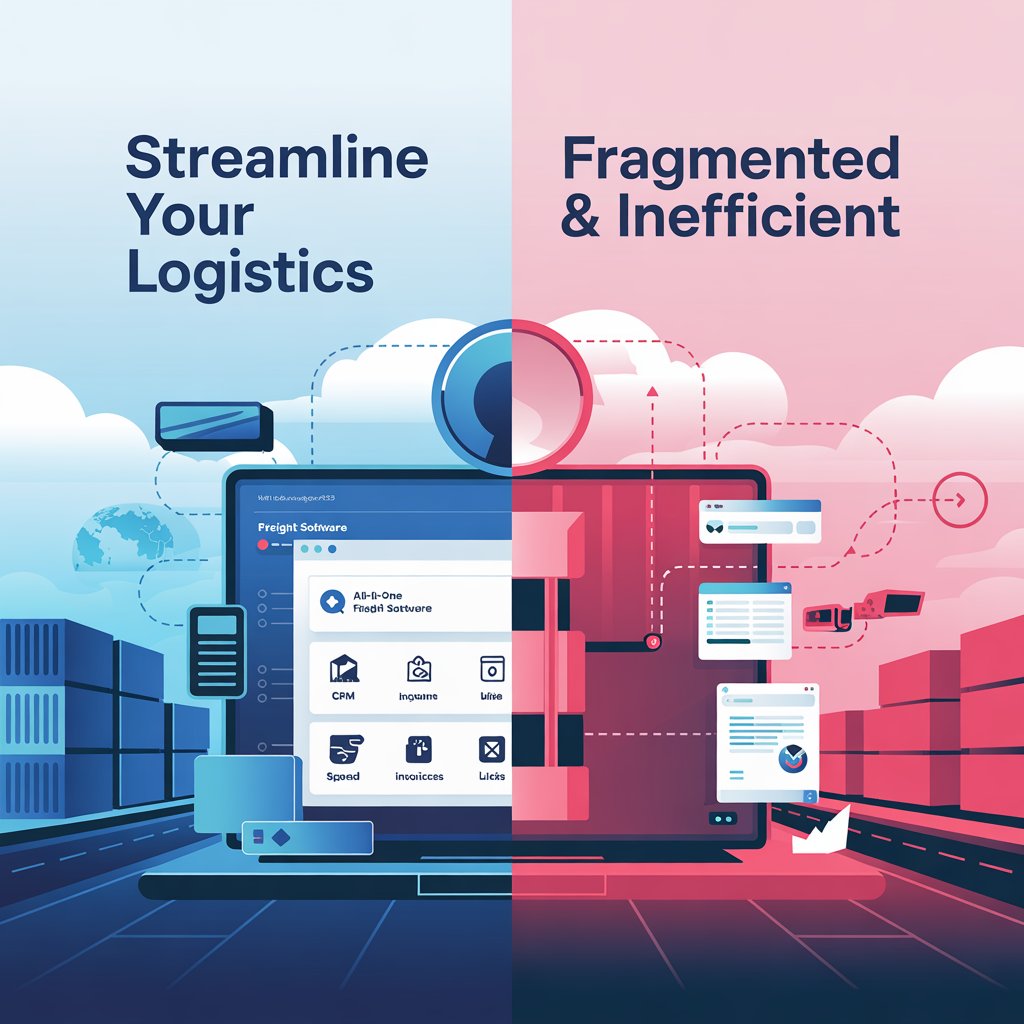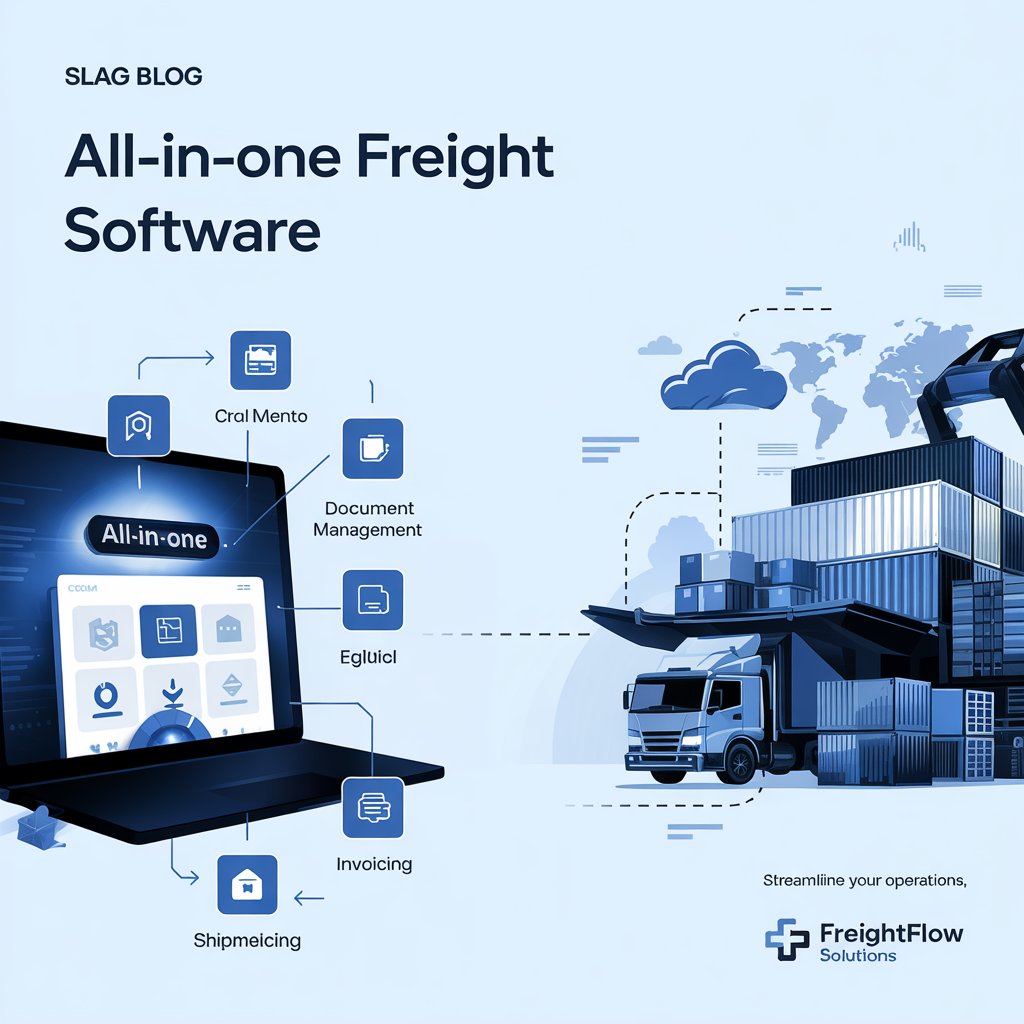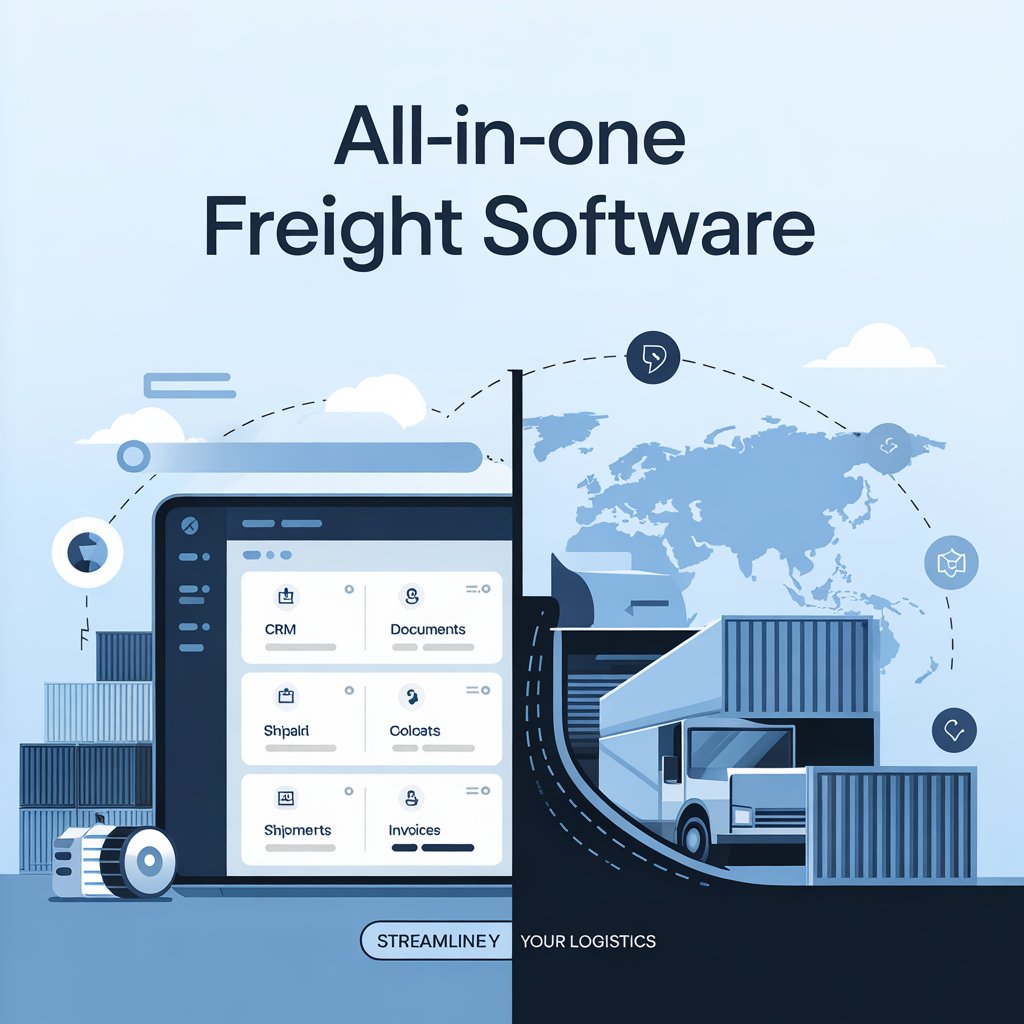All-in-One vs. Specialized Logistics Software: What’s Right for You?

What Is All-in-One Freight Software?
All-in-one logistics software bundles essential tools—shipment tracking, CRM, quoting, invoicing, documentation, customer portals, and more—into a single unified platform.
✅ Pros:
- Centralized data & workflows
- Better visibility across departments
- Lower integration costs
- Faster onboarding and support
- Ideal for small to mid-sized teams that want simplicity and automation
❌ Cons:
- May not offer deep specialization in every area
- You rely on one provider for everything (which may feel limiting if your needs are highly niche)
Example: Linbis is a modern all-in-one freight software that lets you manage quotes, shipments, CRM, invoicing, and documents—all in one platform, with real-time collaboration built in.

What Is Specialized Freight Software?
Specialized software refers to standalone tools built for specific tasks—like a CRM system, a warehouse manager, or a customs compliance tool.
✅ Pros:
- Deep, feature-rich focus for a single function
- Great for enterprises with complex or high-volume processes
- May offer more industry-specific workflows for niche segments
❌ Cons:
- Requires integration across multiple tools
- Data silos are common
- Higher total cost of ownership
- Steeper learning curve across systems
Example: You might use Salesforce for CRM, CargoWise for customs, QuickBooks for invoicing, and Trello for task management.
All-in-one vs specialized : Side-by-Side Comparison
Category | All-in-One (e.g., Linbis) | Specialized Tools |
Setup Time | Fast | Slower – requires integration |
Cost Efficiency | Lower (bundled pricing) | Higher (multiple subscriptions) |
Learning Curve | Easy – single interface | Steeper – multiple systems |
Data Consistency | High – single source of truth | Risk of silos |
Best For | SMBs and scaling forwarders | Enterprises with complex demands |

Why Many SMB Forwarders Prefer All-in-one vs Specialized
For small to medium freight businesses, time and resources are limited. All-in-one platforms like Linbis help you:
- Avoid juggling between tools
- Automate workflows across quoting, tracking, and invoicing
- Offer clients real-time visibility
- Stay lean, agile, and competitive
It’s everything you need—without the IT headache.

🧭 Which One Should You Choose? all-in-one vs specialized
Choose All-in-One if… | Choose Specialized if… |
You’re a small to mid-sized forwarder | You’re a large enterprise with internal IT support |
You want simplicity + automation | You need highly customized, deep-function systems |
You prefer transparent pricing | You don’t mind building and maintaining integrations |
You want fast onboarding and minimal training | You have time and budget to train across systems |
✅ Final Thoughts all-in-one vs specialized
There’s no one-size-fits-all answer—but for many freight forwarders, especially those in growth mode, all-in-one logistics software provides the perfect balance of functionality, simplicity, and scalability.
And if you’re looking for a solution that combines quoting, CRM, tracking, documents, invoicing, and client collaboration under one roof…
👉 Linbis is a powerful all-in-one freight software built to grow with you.
